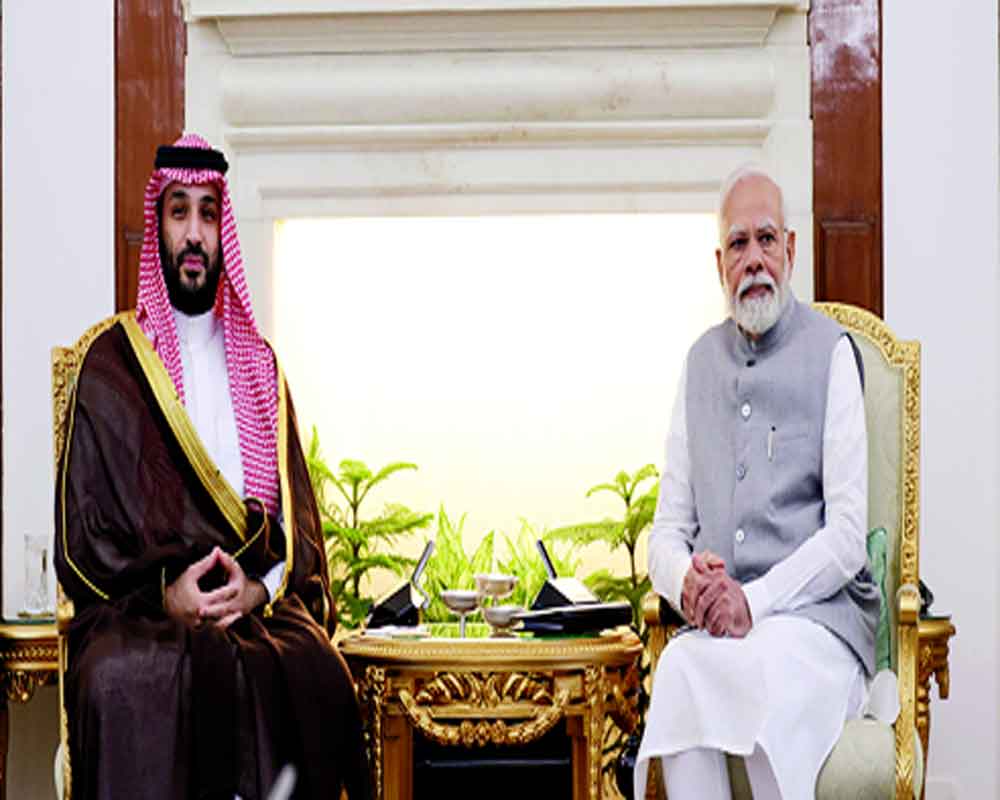India advocates for a balanced voice in shaping a multilateral world order
As elections draw closer, Prime Minister Narendra Modi has been frequenting India’s south more than championing the causes of the global south across available diplomatic platforms. One reason is that his party seems to have a weaker presence down south. Earlier, as a strategic choice, PM Modi chose to inaugurate a Hindu temple in a Muslim country during his last foreign trip in the current tenure. Even as he did so, statements regarding continuity of policies and outlook were subtly delivered when PM Modi confidently told his audience that he already has invitations from several foreign governments for the middle and latter part of 2024, indicating confidence in his potential third term.
A third term for Modi would have wider ramifications for a whole bunch of issues, not to mention foreign policy, given India’s rising economic clout and confidence, making it a significant player in global affairs. India is expected to be the third-largest economy after the US and China in PM Modi’s next term, which, besides putting a couple of stars on the shoulder, will also mean a heavy lift of responsibilities.
One of the significant achievements for Mr. Modi, particularly during his second term, has been uplifting the India-US relationship and situating it in the Indo-Pacific context. While the India-US bilateral is by far at its strongest ever in history, the two nations have managed to work through several plurilateral platforms, the most important being the QUAD (a grouping of the US, India, Australia, and Japan), each having significant stakes and interests in the Indo-Pacific, while also wary of the dragon in the region, never stopping short of using any overt or covert means to push its assertive agenda.
While some of the world’s finest diplomats, policymakers, and think tanks were deliberating on global issues last week, EAM Jaishankar found some time to speak to a whole bunch of policy strategists on the relevance of QUAD and the way forward. EAM highlighted the changing nature of India’s foreign policy outlook over the last decade when he mentioned “remarkable changes in India’s bilateral relationships with its three Quad partners. With the US, we put behind ideological hesitations of history. With Japan, we gave longstanding goodwill much more practical shape. And with Australia, we actually made a real beginning in seriousness.”
Even though there hasn’t been a QUAD leaders summit since May last year, backroom meetings between foreign ministers from the member countries to discuss issues of regional and global importance haven’t taken a backseat. Given the political compulsions, it might be difficult for India to host the QUAD leaders summit this year, as it will be too close to the US elections by the time the new Indian government is in place. However, the significant targets India aims to achieve through the QUAD group, as highlighted by EAM, namely, “it reflects the growth of a multipolar order. Two, it is a post-alliance and post-Cold War thinking. Three, it is against spheres of influence. Four, it expresses the democratizing of the global space and a collaborative, not unilateral, approach. And five, it is a statement that in this day and age, others cannot have a veto on our choices,” shall remain in focus. It is this message of continuity of policies that the Indian government is highlighting to the domestic and international audience at a time when instability is the norm for most, including powerful nations in the world.
India has effectively managed the QUAD as a non-military arrangement, unlike NATO, with shared interests of all members in the region. Mr. Jaishankar highlighted in his address, “Among Quad countries, there is a growing comfort in working with each other given the strong consensus we have in our strategic outlooks. India’s bilateral partnerships with each of these three Quad countries have also transformed in recent years.”
The message is clear: India will continue to push for a multilateral world order with a fair share of voice on international forums.
(The writer is a policy analyst; views are personal)


























